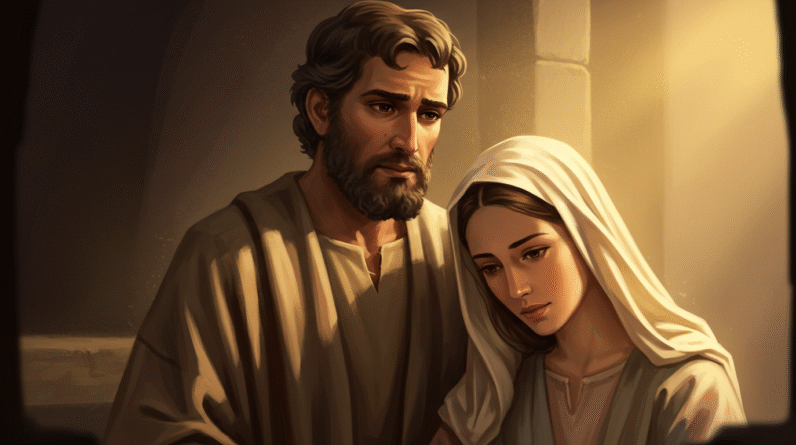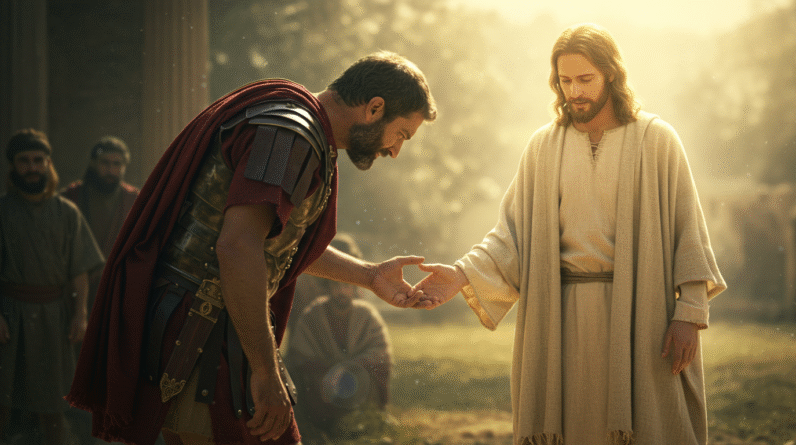Explore timeless lessons on leadership, faith, and wisdom through the righteous judgments of Deborah and Solomon, offering insightful parallels for today’s world.

Righteous Judges – Judges 4:4-5; 1 Kings 3:16-28
In an ancient world filled with turmoil and adversities, figures of wisdom and justice shone brightly, leaving behind timeless lessons on righteousness and discernment. Among these are the judges depicted in the Bible, emblematic of divine wisdom in fraught times. Two such moments encapsulate the role of righteous judgment: the leadership of Deborah in Judges 4:4-5 and the famous judgment of Solomon in 1 Kings 3:16-28.
Deborah: Prophetess and Judge
Key Reference(s): Judges 4:4-5
Deborah stands as a beacon of leadership, wisdom, and courage in the Book of Judges. Known as a prophetess and the wife of Lappidoth, she became Israel’s steadfast leader at a time when the nation sorely needed guidance amidst oppression and instability. Her seat was under the palm tree of Deborah, a place where Israelites came to her for judgment and wisdom. As a female figure in a predominantly male-driven narrative, Deborah’s role is both groundbreaking and inspirational.
The Story of Deborah
In the biblical narrative, Deborah holds a unique position: she is both a leader and a prophetess. The Book of Judges portrays a cycle of Israel’s faithfulness turning to apostasy and subjugation by foreign enemies. Deborah arose at a time when the Israelites were oppressed by Jabin, king of Canaan, and his commander Sisera. Deeply attuned to God’s guidance, Deborah summoned Barak, the son of Abinoam, commanding him to lead an army against Sisera with the assurance that God had delivered him into their hands.
Barak, however, showed hesitance and requested Deborah’s presence in the battle, acknowledging her spiritual authority and the confidence it inspired in his troops. Deborah agreed but prophesied that the honor of victory would be given to a woman. Her prophecy was fulfilled when Jael, the wife of Heber the Kenite, killed Sisera with a tent peg, leading to Israel’s liberation from Canaanite oppression.
Lessons from Deborah’s Life
- Leadership and Courage: Deborah’s story teaches us that true leadership does not depend on gender, social position, or conventional perceptions of strength. Her decisive actions paved the way for liberation, showcasing how courage can often be the catalyst for collective change.
- Faith and Prophecy: Deborah’s relationship with God exemplifies the power of faith paired with divine wisdom. Her willingness to be God’s mouthpiece and her clear understanding of her calling inspire a modern audience to seek divine guidance in times of doubt.
- Empowerment and Collaboration: By leading with Barak and entrusting Jael with the foretold victory, Deborah demonstrated the importance of collaboration and empowerment rather than competition.
Connection to Today’s World
In today’s society, where leadership structures are continually evolving, Deborah’s story offers valuable lessons about breaking away from stereotypes and the empowerment of marginalized voices. Her experiences resonate in modern conversations about gender equality, leadership empowerment, and spiritual intuition. In personal and professional lives, Deborah’s example encourages individuals to lead with wisdom, ensuring decisions are grounded in integrity and divine insight.
Key Bible Verse
“Deborah, a prophetess, the wife of Lappidoth, was leading Israel at that time.” (Judges 4:4)
This verse highlights Deborah’s dual role as both judge and prophetess, emphasizing how she was uniquely chosen and equipped to guide Israel through tumultuous times. Her spiritual leadership is a reminder of the power God can grant to those He calls according to His purpose.
Solomon: The Wise King
Key Reference(s): 1 Kings 3:16-28
Solomon, the son of David and Bathsheba, is renowned for his extraordinary wisdom, a gift he asked from God early in his reign. Known for building the magnificent temple in Jerusalem and for his wealth and diplomacy, Solomon also left a legacy of wise judgments, the most famous of which involved two women claiming to be the mother of a baby. This incident is an enduring testament to his discerning mind and divine insight.
Solomon’s Famous Judgment
When two women living in the same house approached King Solomon, both claiming to be the mother of a living baby, he was faced with determining the true mother without clear evidence. Solomon proposed a seemingly drastic solution: to cut the baby in two and give half to each woman. The true mother, driven by love and the instinct to protect her child, immediately offered to give the baby to the other woman. Solomon then revealed the truth through this selfless act, proclaiming her the rightful mother.
This event resonated far beyond the courtroom, building an image of Solomon’s God-given wisdom. It not only resolved the immediate conflict but also established Solomon’s reputation across Israel and neighboring nations as a king endowed with divine understanding and insight.
Lessons from Solomon’s Life
- Wisdom and Discernment: Solomon’s ability to discern the true mother showcases the importance of wisdom in leadership. It serves as a reminder of the necessity of understanding and delegation in resolving complex issues.
- Sincerity and Justice: The true mother’s willingness to sacrifice her claim for the child’s welfare shows how sincerity and love can pave the way for justice.
- Divine Guidance: Solomon’s wisdom was a gift from God, a testament to the power of asking for guidance and insight over worldly desires. This decision emphasizes the value of priorities driven by conviction rather than material wealth.
Connection to Today’s World
In a world laden with disputes and challenges, Solomon’s story underscores the importance of wise, empathy-driven resolutions. His experience teaches modern society about seeking deeper understanding and human compassion to solve intricate issues, be they personal dilemmas or global conflicts. When faced with contemporary issues, Solomon’s story invites us to embrace the essence of wisdom—understanding beyond surface-level judgments.
Key Bible Verse
“Then the king said, ‘Give her the living baby; don’t kill him; she is his mother.’” (1 Kings 3:27)
This verse encapsulates Solomon’s wisdom in action. It highlights intuitive understanding and divine insight over paired logic and human emotion, paving the way for truth and justice to prevail.
Thought-Provoking Question
Reflecting on the choices you face, how often do you prioritize divine wisdom over immediate emotions or societal expectations, as Solomon exemplified in his judgment?
Final Thoughts
The stories of Deborah and Solomon stand as remarkable testaments of leadership, wisdom, and faith. Both figures faced adversity with integrity and resolute trust in divine guidance, offering timeless lessons to navigate the challenges of both ancient and modern worlds. Whether in positions of responsibility or personal decision-making, seeking a path aligned with righteousness remains a guiding beacon in every era.
Remember, if you found this article insightful, do clap for it, leave a comment, and consider subscribing to stay updated with more thought-provoking stories and reflections on faith, leadership, and wisdom.







